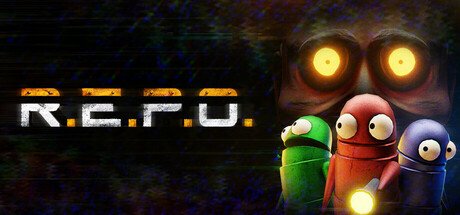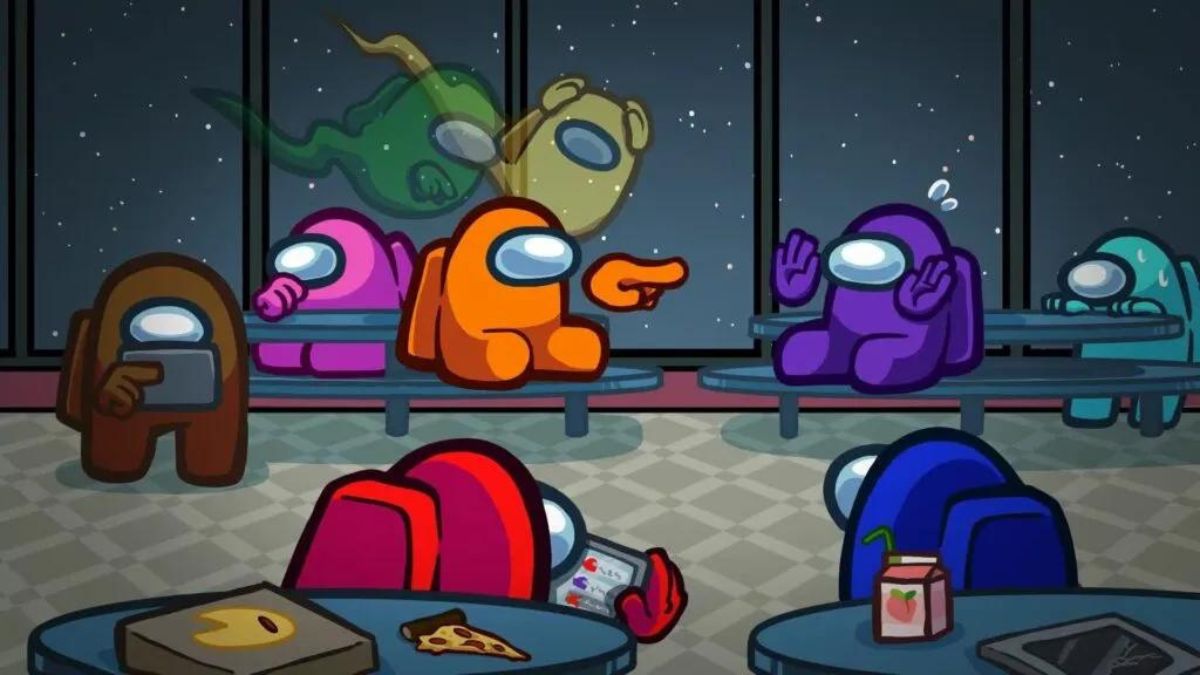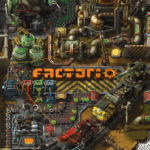R.E.P.O. (Rapid Extraction and Procurement Operations) is a twisted, first-person co-op horror game that blends corporate satire, body horror, and chaotic teamwork into a uniquely nightmarish experience. Developed by [Mimicry Games], this early-access title casts players as low-level employees of a ruthless dystopian megacorporation. Their job? Enter derelict facilities, retrieve abandoned assets (often grotesquely alive), and escape with their lives—and bonuses—intact.
R.E.P.O. is a fusion of Lethal Company’s procedural chaos, Dead Space’s meat-grinder horror, and the bureaucratic absurdity of Papers, Please. But it’s not just a copycat. With an escalating gameplay loop, deep lore hidden in terminals and cargo manifests, and unpredictable enemy encounters, it carves out its own disturbing identity.
This article explores R.E.P.O. in depth—its mechanics, tone, design, and community-driven evolution—revealing why this game has captured the attention of hardcore horror fans and chaotic co-op players alike.
1. The Premise: Capitalism at Its Worst
Set in a distant future where human life is expendable and property is sacred, R.E.P.O. places you in the boots of a corporate retrieval officer tasked with recovering high-value assets from abandoned or hostile environments. These assets include biological experiments, dismembered machinery, and sentient objects—all deemed "valuable" by the corporation.
You work not for honor, not for survival—but for quotas and performance bonuses. Failure to deliver? Permanent termination. Literally.
This premise creates a twisted narrative tone. It’s darkly satirical, mocking the dehumanization of workers in late-stage capitalism. But beneath the absurdity is real horror, and a surprisingly deep system that punishes greed, complacency, and poor planning.
2. Gameplay Loop: Extraction, Chaos, Repeat
Each run in R.E.P.O. begins at your company ship. You and your team receive a contract: retrieve specific assets, avoid unnecessary damage, and escape within a time limit. Missions are procedurally generated, offering different maps, hazards, and enemies.
The gameplay loop includes:
-
Deploying into a facility
-
Navigating corridors and terminals
-
Locating and securing high-value assets
-
Returning items to the ship while evading threats
It seems simple until everything goes wrong. Doors malfunction. Systems break. Entities awaken. The best-laid plans fall apart in seconds, and survival becomes more valuable than profit.
3. Tools and Gear: Corporate-Supplied Survival
Your gear is provided by the company—and it’s often low-grade, outdated, or humorously unreliable. Basic tools include:
-
Hand Scanners to locate assets
-
Stun Batons for crowd control
-
Signal Boosters to ping locations
-
Portable Containers for hauling loot
Advanced gear can be unlocked through performance bonuses, but comes with caveats: expensive, fragile, or ethically questionable. You might buy an item labeled “Prototype” only to realize it short-circuits when exposed to water.
The gear system forces players to adapt, experiment, and improvise, which adds chaos and creativity to each run.
4. Multiplayer Co-Op: Communication is Key
R.E.P.O. supports up to 4-player co-op, and coordination is essential. Tasks often require splitting roles: one person opens security doors, another scouts for loot, another defends the team, and someone carries assets back to the drop ship.
But communication breaks down under pressure. Proximity-based voice chat means teammates can become separated, and the deeper into the facility you go, the worse the signal. Screams for help may go unheard. And betrayal—accidental or intentional—is always a possibility.
The game thrives on this dynamic. Whether you’re rescuing a friend or watching them get consumed by something unspeakable, the emotional weight of failure hits harder when it’s shared.
5. Horror Elements: Tension, Body Horror, and Panic
R.E.P.O. doesn’t rely on jumpscares. Its horror builds through atmosphere, dread, and the uncanny. Lights flicker unpredictably. Organic growths pulse along the walls. Sometimes the “assets” beg not to be returned. Sometimes they scream when touched.
Enemies range from mutated experiments to invisible stalkers. Some are triggered by sound, others by light or scent. Learning their behavior is vital, but failure is fast and violent. Death isn’t just common—it’s grotesque.
Sound design elevates the fear. Distant breathing, shuffling metal, corrupted radio signals—all build tension without revealing the source. You're constantly second-guessing your surroundings.
6. Lore and Environmental Storytelling
While there’s no traditional cutscene-based story, R.E.P.O. is rich in environmental storytelling. Terminals contain emails, memos, and incident reports that hint at experiments gone wrong and internal sabotage. Wall scrawls and blood trails tell stories of failed teams before you.
There’s also hidden lore in asset descriptions. You’ll retrieve things labeled “Subject K-9.2” and wonder what happened to versions 1 through 8. Every run can reveal new pieces of a wider corporate conspiracy, leaving players to piece it all together.
The game invites obsessive players to document, theorize, and unravel a narrative buried under the chaos.
7. Progression and Replayability
Progression in R.E.P.O. is tied to reputation, credits, and unlockable tools. As you complete contracts and return alive, you gain access to:
-
New gear and upgrades
-
Harder contract tiers
-
Mutated maps with higher risk/reward
-
Cosmetic unlocks (often humorous or grotesque)
Each run is different due to procedural generation, but progression feels rewarding because it doesn’t make the game easier—it makes it more dangerous. You unlock harder contracts and larger facilities that introduce new mechanics and creatures.
The game encourages experimentation and teamwork without making any path feel overpowered.
8. Visual and Audio Design
The aesthetic of R.E.P.O. is grimy, industrial, and claustrophobic. It’s full of decaying steel corridors, flickering emergency lights, organic material growing through vents, and analog tech buzzing with static.
The user interface looks like a DOS-era operating system. Even terminals you interact with feel outdated and bureaucratic, full of typos, system crashes, and impersonal directives.
Audio is critical to the experience. You’ll rely on it more than visuals. Footsteps echo down empty halls. Alarms blare at random intervals. And in the silence, you’ll hear the awful truth: you’re not alone.

































